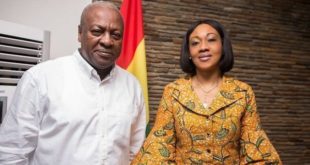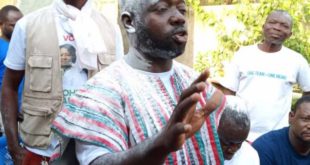To further strengthen Ghana’s economic foundations, boost growth, and promote an environment favorable to job creation and prosperity, the government has approved a number of economic initiatives.
The three-day Cabinet retreat that ended yesterday resulted in these strategic goals.
The initiatives will be crucial to the government’s efforts to revive the economy.
At a media briefing in Accra, Minister of Information Kojo Oppong Nkrumah discussed the Cabinet retreat.
He praised the government’s pleasure with the Post COVID-19 Programme for Economic Growth (PC-PEG) implementation progress, which has helped to foster a sense of relative stability.
Notably, this stability has resulted in significant progress in fiscal reduction as well as a decline in inflation, a more stable national currency, and an improvement in the position of the international reserves.
“The first thing was to take note of the implementation of the progress of the Post COVID-19 Programme for Economic Growth (PC-PEG) and cabinet was pleased with the results so far; the relative stability that is returning to the Ghanaian economy and the relative recovery that we’re beginning to see. As you can notice inflation is coming down, though currently about 38 which is still high but there is a combination of efforts to ensure that it comes down a bit more.
The Minister stated that the “cedi is largely stabilized,” “the international reserve position is improving,” and “most importantly,” “the fiscal consolidation that we’ve been trying to achieve between last year and this is being achieved and even as a forecast to next year, we have some confidence that will be achieved.”
Structural reforms, with a focus on the medium term in particular, are at the heart of these approved initiatives. According to Mr. Oppong Nkrumah, these reforms include bolstering the Public Financial Management System to deal with off-book arrears, which historically have put a burden on the country’s financial stability. According to him, the government would make sure that all government organizations adopt the GIFMIS platform and put strict spending controls in place to manage expenditure by government organizations.
He claims that in order to combat inflation, the government will work closely with the Bank of Ghana (BoG), noting that the latter has committed to maintaining a strict monetary policy with the goal of bringing down inflation from its current level of roughly 38% to 15% by the end of the following year.
According to Mr. Oppong Nkrumah, maintaining the currency rate’s stability is a key objective of these economic policies in order to avoid substantial changes as the year goes on.
He stressed that these government-approved economic initiatives are intended to reinforce Ghana’s economic underpinnings, spur growth, and foster an atmosphere that is favorable for the creation of jobs and prosperity.
Source: Ghanatodayonline.com
 Ghanatodayonline.com News, Politics, Health, Education & More
Ghanatodayonline.com News, Politics, Health, Education & More



